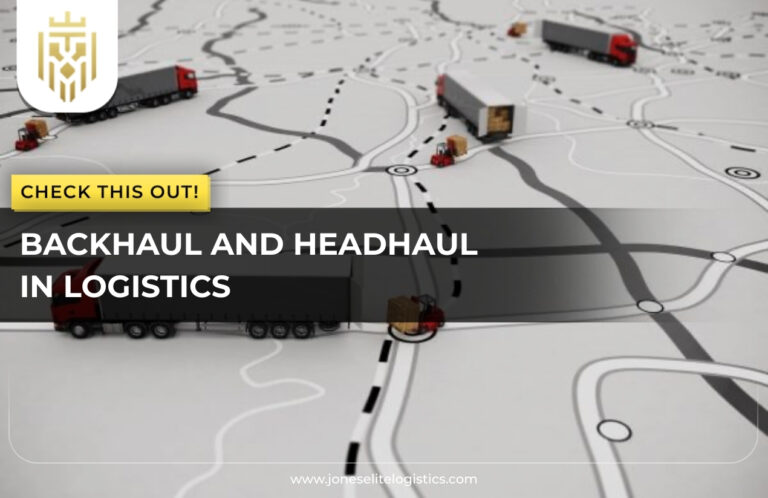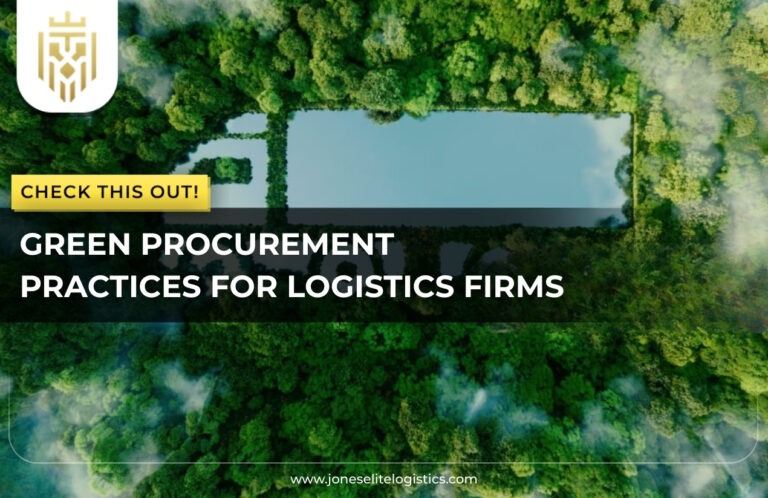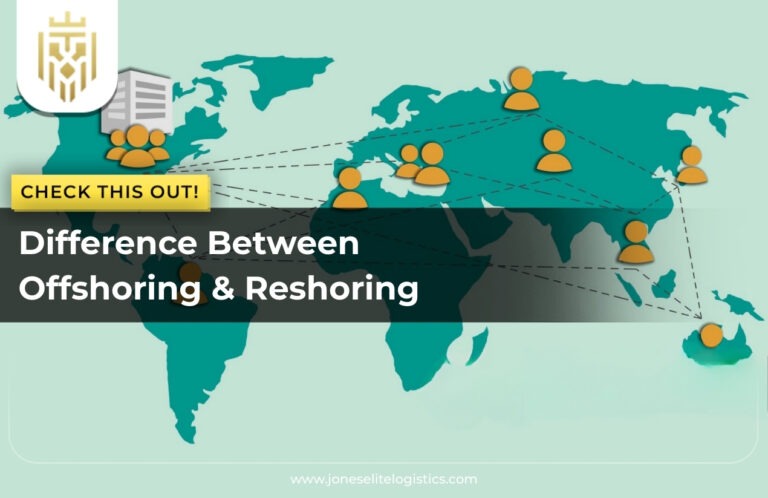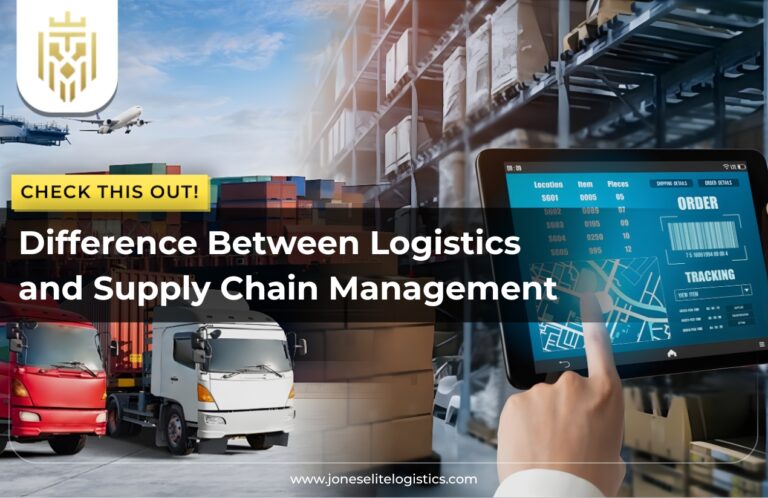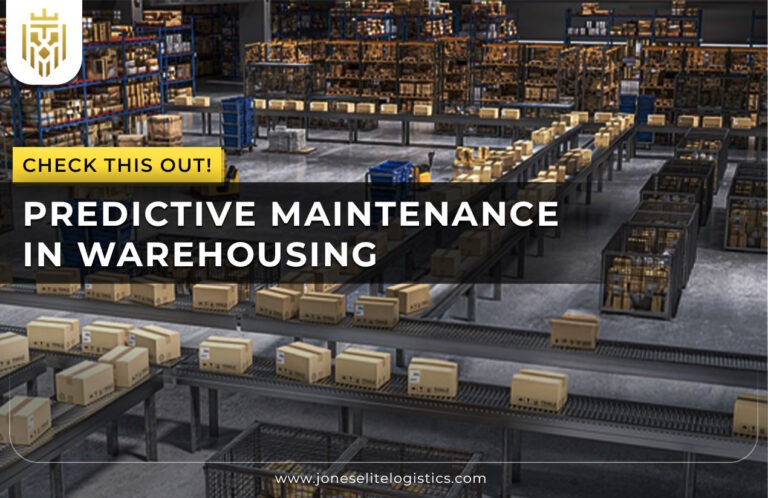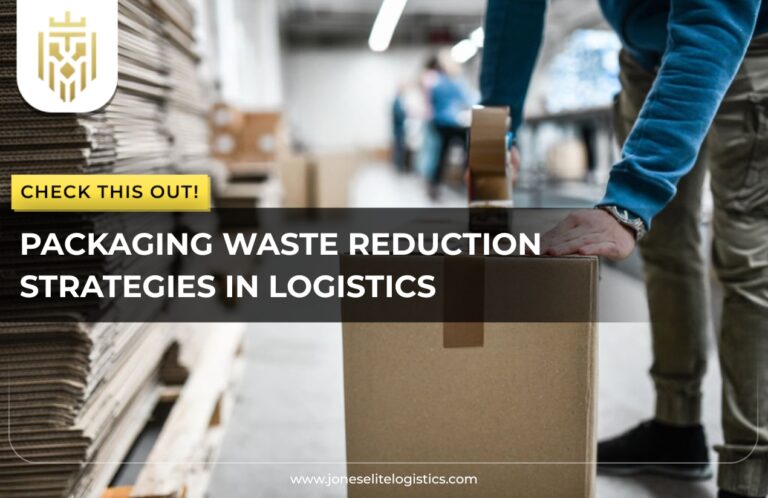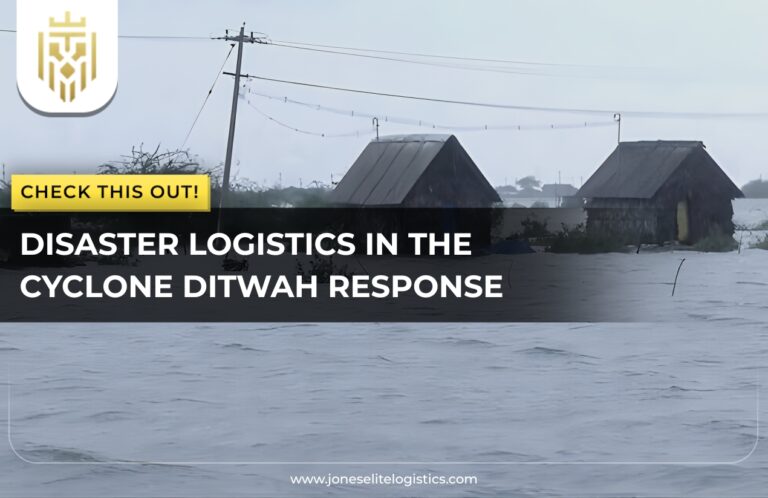What Are Incoterms?
Incoterms, or International Commercial Terms, are globally recognised trade guidelines used to clearly define the responsibilities of buyers and sellers in international shipping. These standardised terms determine who handles transportation, insurance, customs clearance, and other logistics-related obligations in cross-border transactions.
Why Do Incoterms Matter?
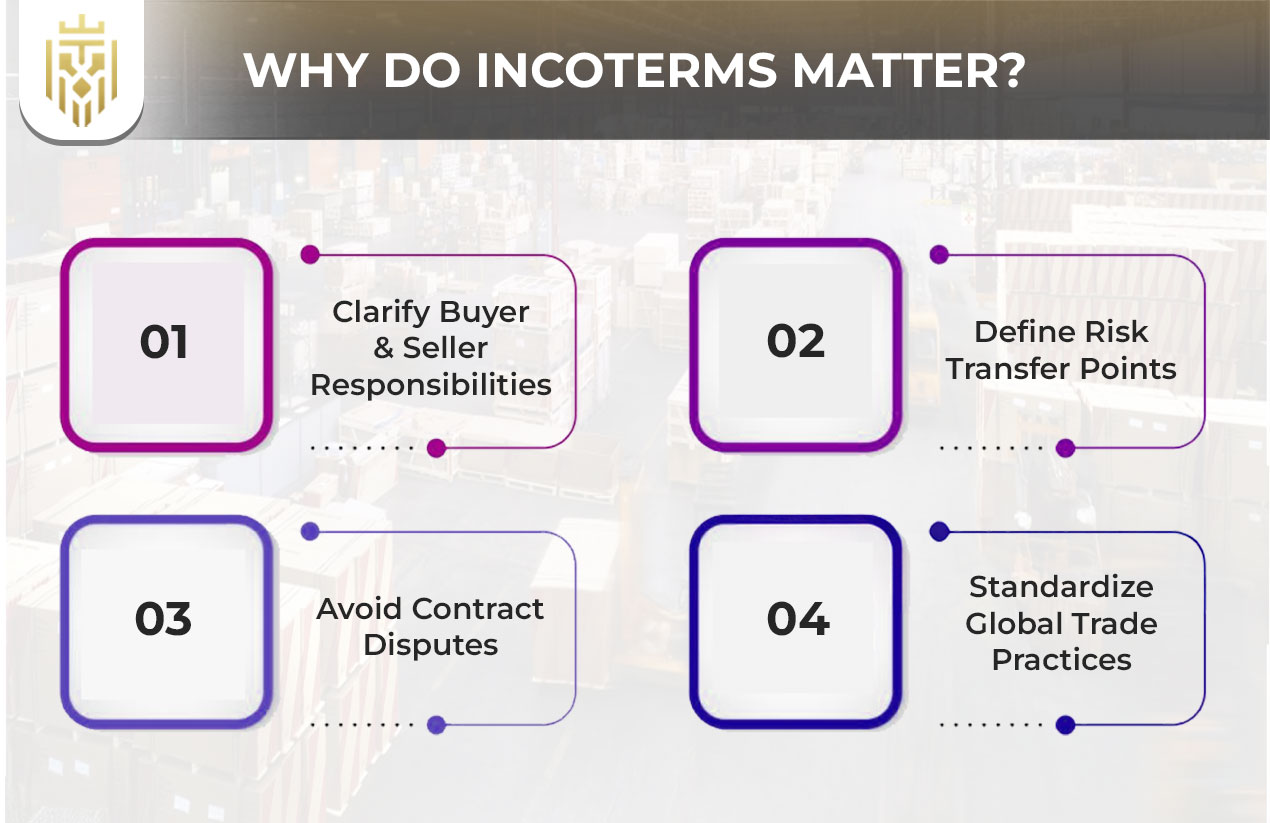 Understanding and applying Incoterms helps both parties in international trade avoid miscommunication and unforeseen costs. They reduce risk, prevent delays, and provide clarity by outlining expectations. Incoterms also contribute to smoother cross-border logistics, benefiting importers and exporters across various industries.
Understanding and applying Incoterms helps both parties in international trade avoid miscommunication and unforeseen costs. They reduce risk, prevent delays, and provide clarity by outlining expectations. Incoterms also contribute to smoother cross-border logistics, benefiting importers and exporters across various industries.
Clarify Buyer & Seller Responsibilities
Incoterms outline the specific roles of buyers and sellers regarding freight costs, handling procedures, and documentation. This clarity minimises errors and streamlines logistics by ensuring that each party is fully aware of their obligations throughout the shipping process.
Define Risk Transfer Points
One of the core purposes of Incoterms is to identify the exact moment when ownership and risk shift from the seller to the buyer. These predefined points help both parties allocate liability appropriately, especially in the event of damage or loss during transit.
Avoid Contract Disputes
By providing a universally accepted structure, Incoterms reduce the potential for legal disputes. They serve as a reference point in contract negotiations, minimising misinterpretation and ensuring smoother resolution if disagreements arise.
Standardise Global Trade Practices
Established by the International Chamber of Commerce (ICC), Incoterms standardise obligations in international business. This consistency enables companies worldwide to operate under common rules, improving efficiency and predictability in global commerce.
Key Incoterms You Should Know (As per Incoterms 2020)
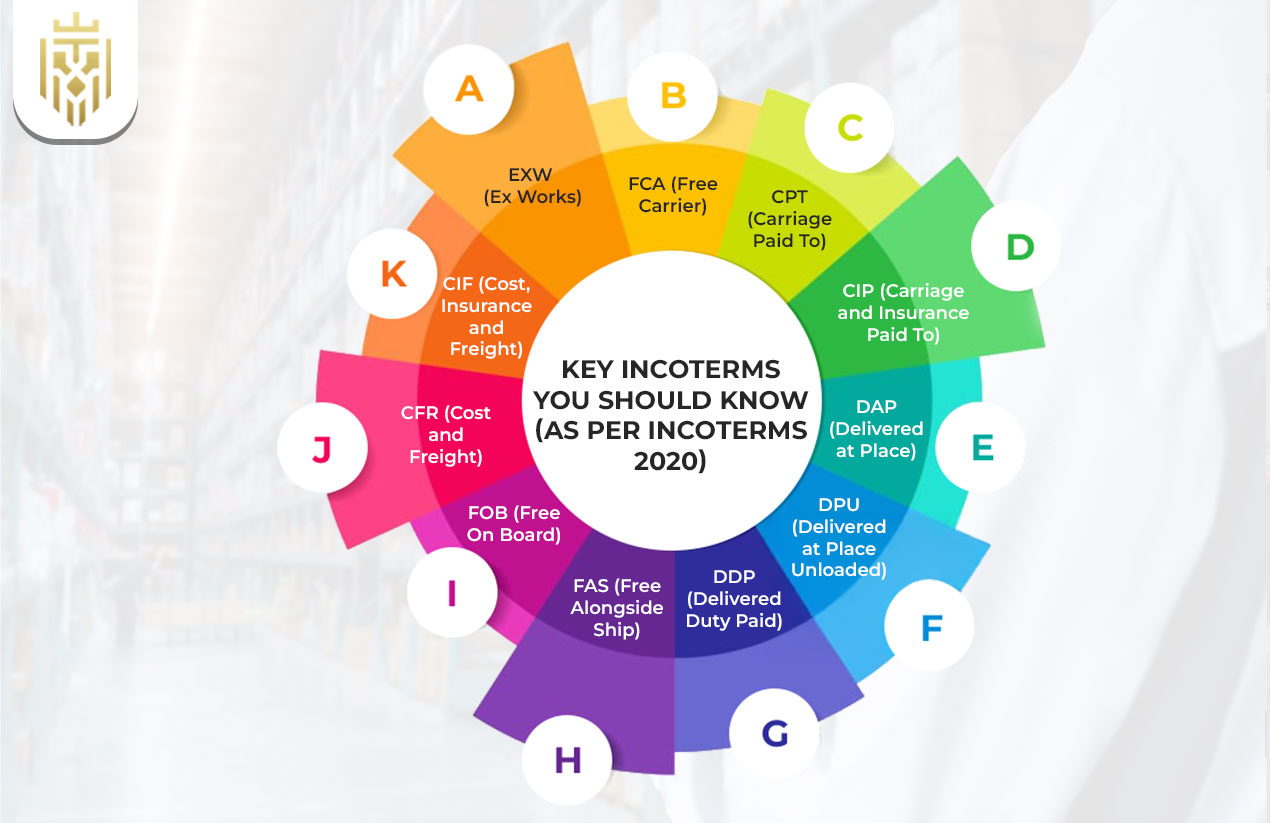
The latest revision of Incoterms, released in 2020, outlines 11 terms used to define duties in different transportation scenarios. Familiarity with these terms helps prevent logistical errors and ensures legal compliance.
EXW (Ex Works)
EXW places maximum responsibility on the buyer. The seller makes goods available at their premises, and the buyer handles all transportation, customs, and insurance. This term suits experienced importers who can manage full logistics independently.
FCA (Free Carrier)
Under FCA, the seller delivers goods to a carrier or location specified by the buyer. It accommodates various transport modes and is commonly used when the buyer arranges main carriage and controls freight costs and timelines.
CPT (Carriage Paid To)
In CPT, the seller pays for transportation to the destination, but the risk shifts to the buyer once goods are handed over to the carrier. Clear agreement on responsibilities helps prevent confusion, especially on multi-leg journeys.
CIP (Carriage and Insurance Paid To)
CIP extends CPT by requiring the seller to provide insurance coverage. It offers added protection to buyers, particularly when transporting high-value or sensitive cargo through unpredictable routes.
DAP (Delivered at Place)
Under DAP, the seller assumes risk and cost until delivery at the agreed location. Buyers benefit from simplified logistics, especially when sellers are better equipped to handle international shipping and customs.
DPU (Delivered at Place Unloaded)
DPU makes the seller responsible until goods are unloaded at the destination. This term requires buyers to be familiar with destination terminal procedures and local regulations to manage final delivery effectively.
DDP (Delivered Duty Paid)
DDP is most buyer-friendly, as the seller handles all duties, customs, and delivery. While convenient for the buyer, the seller must understand the regulations and tax implications in the buyer’s country to ensure full compliance.
FAS (Free Alongside Ship)
FAS applies to sea freight. The seller delivers goods next to the vessel, and the buyer manages loading and subsequent transportation. This term is ideal for bulk shipments where the buyer seeks control over the shipping process.
FOB (Free On Board)
FOB requires the seller to bear responsibility until goods are loaded onto the vessel. It is widely used in maritime trade and provides a balanced division of tasks between buyer and seller.
CFR (Cost and Freight)
CFR mandates that the seller pays for transport to the destination port, but the buyer assumes risk upon shipment. Parties should clarify these points to avoid misunderstandings over liability in case of damage en route.
CIF (Cost, Insurance and Freight)
CIF is similar to CFR but adds insurance, which the seller provides. This term reduces risk for the buyer and is often used when buyers prefer the seller to handle ocean freight and coverage.
Key Documents Involved with Incoterms
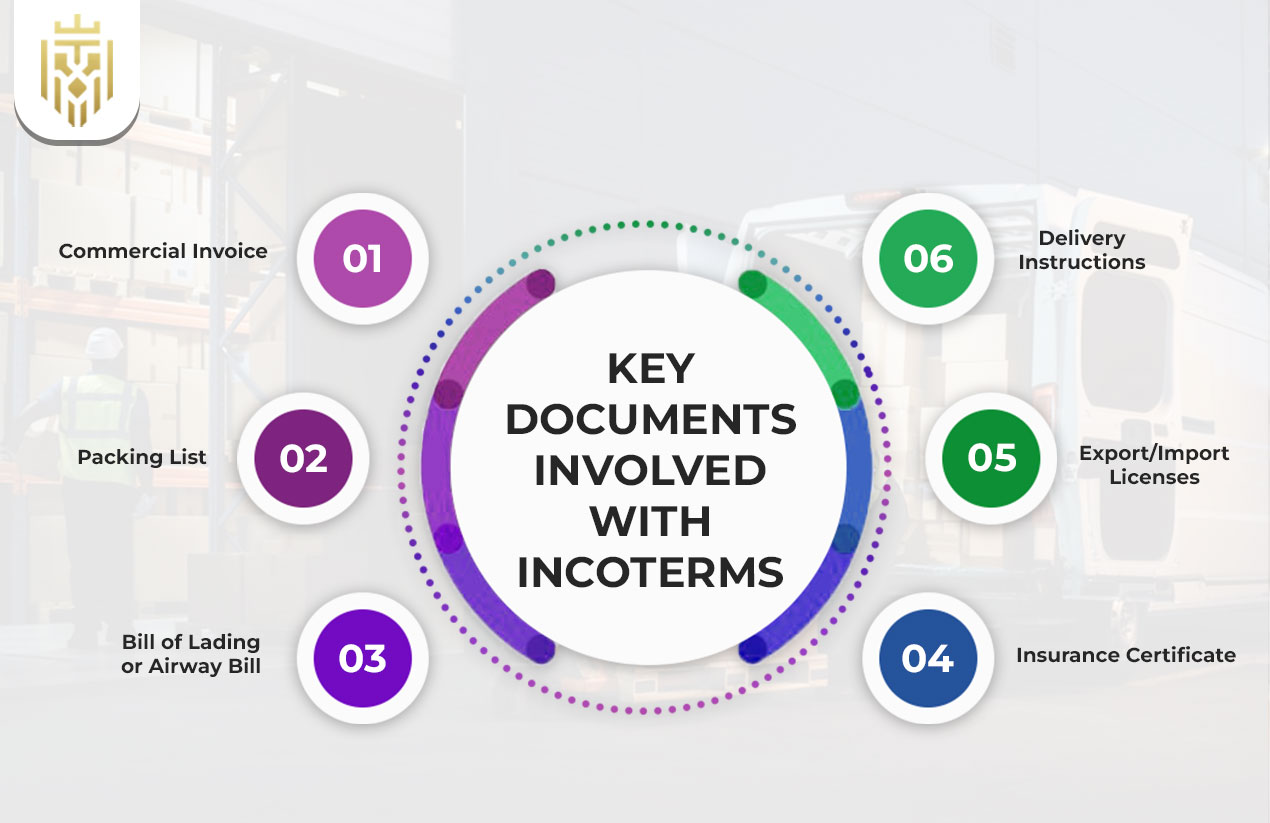
Accurate documentation is essential for smooth execution of Incoterm-related responsibilities. Proper records ensure transparency, accountability, and alignment between buyer and seller throughout the shipping process.
Commercial Invoice
The commercial invoice details product descriptions, values, and payment terms. It plays a critical role in customs clearance and influences financial responsibility under the chosen Incoterm.
Packing List
This document lists package contents, weights, and measurements. Depending on the Incoterm, either the buyer or seller ensures accuracy to support logistics and customs processes.
Bill of Lading or Airway Bill
These transport documents serve as proof of cargo possession and delivery terms. The issuing party and its content depend on the agreed Incoterm and the mode of transport.
Insurance Certificate
A certificate of insurance confirms coverage during transit. It is particularly important under CIP and CIF, where the seller is responsible for securing protection against potential loss or damage.
Export/Import Licences
Many cross-border transactions require licences. Depending on the Incoterm, either the buyer or seller must secure appropriate government permissions to avoid delays or penalties.
Delivery Instructions
This document provides clear guidance on delivery location, timing, and method. It ensures that contractual terms are implemented correctly and that all logistics run according to plan.
Common Challenges & Smart Solutions
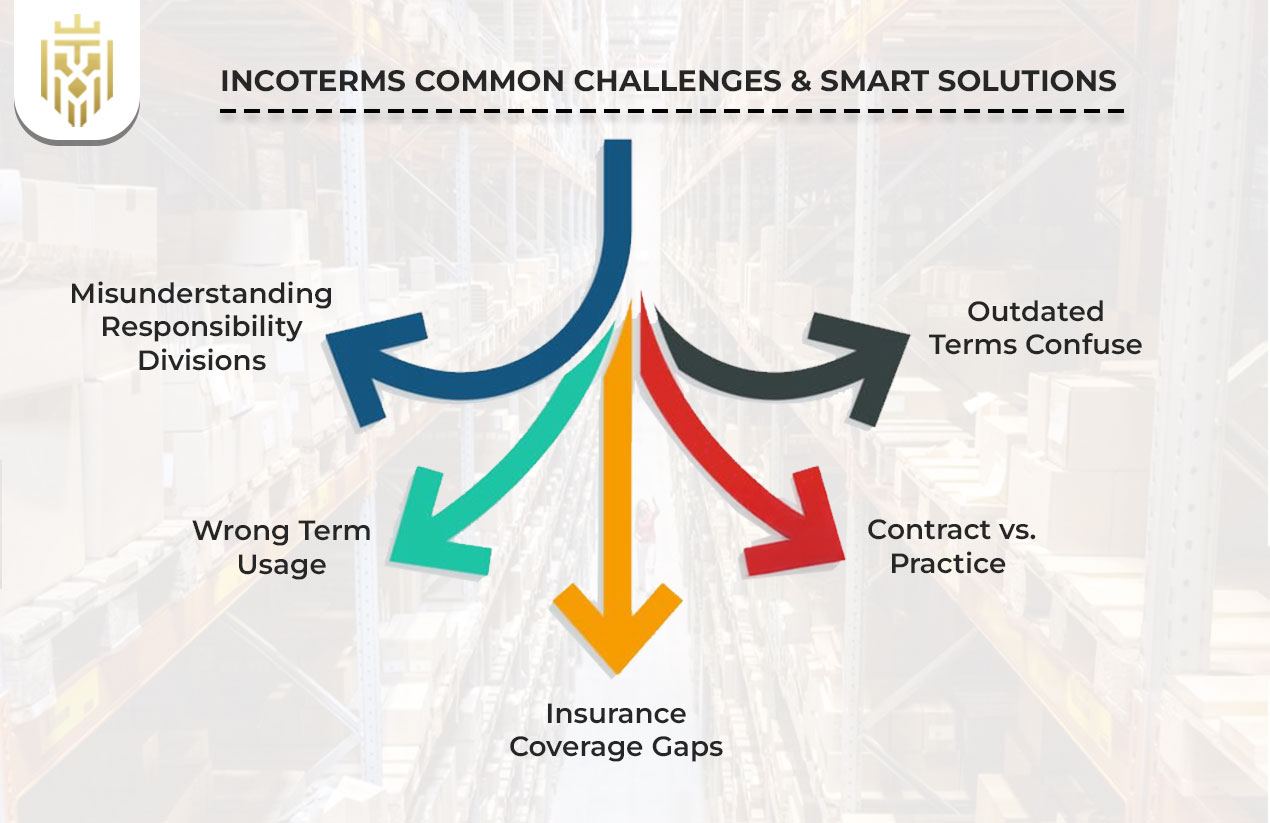
Misapplication or misunderstanding of Incoterms can lead to delays, extra costs, and legal conflicts. Being proactive in identifying and addressing common issues is key to maintaining operational efficiency.
Misunderstanding Responsibility Divisions
When parties are unclear about who is responsible for what, disputes over freight charges and duties arise. Choosing the correct Incoterm helps avoid costly missteps.
Wrong Term Usage
Using an inappropriate Incoterm can result in customs delays or unplanned charges. Parties must understand how terms align with transport mode and delivery expectations.
Insurance Coverage Gaps
Neglecting to coordinate insurance with the applicable Incoterm can leave goods exposed to risk. Businesses should explicitly document who is responsible for coverage.
Contract vs. Practice
Discrepancies between written agreements and real-world actions can cause operational problems. All stakeholders must ensure contract terms are mirrored in execution.
Outdated Terms Confuse
Relying on outdated Incoterms creates ambiguity. Using the latest version—Incoterms 2020—ensures consistency in risk allocation and legal clarity.
Best Practices for Using Incoterms in Shipping
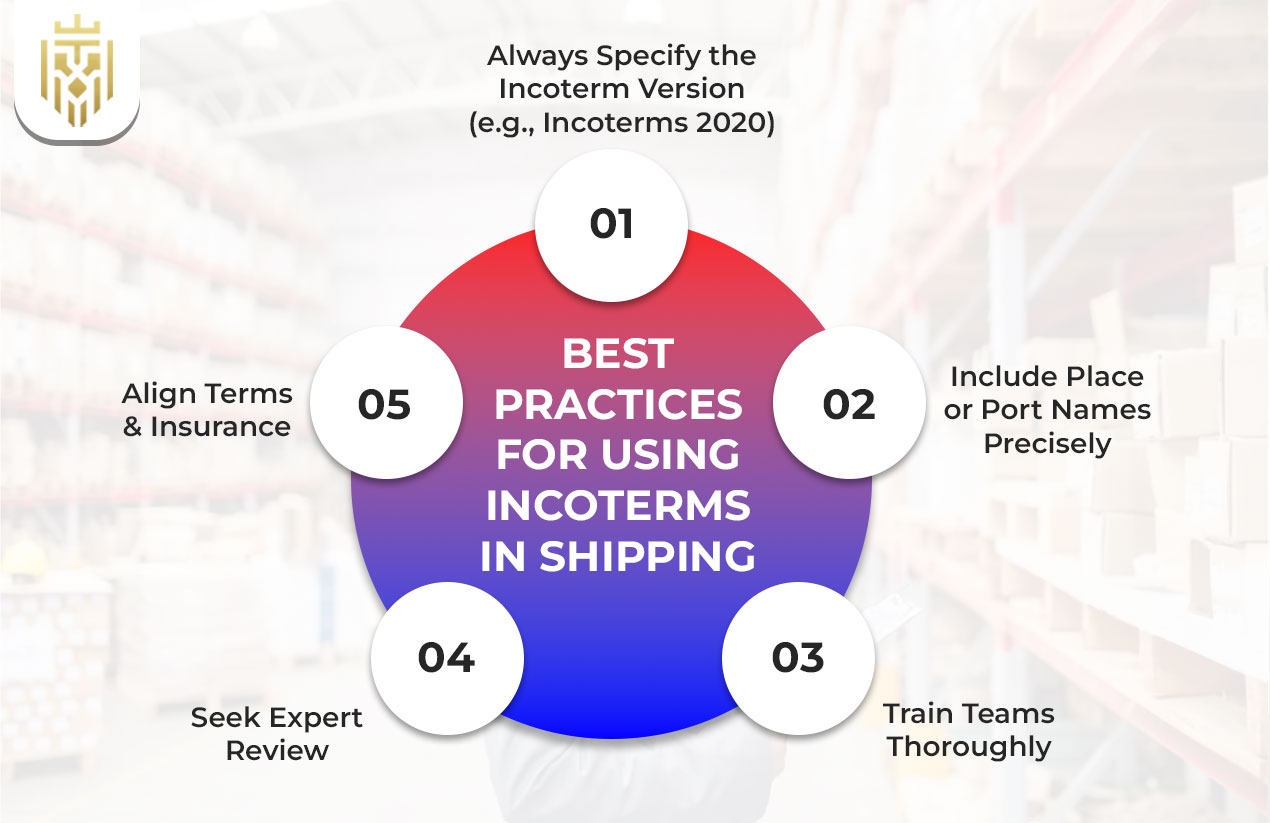
Proper use of Incoterms can prevent disputes, lower costs, and streamline operations. Training, clear documentation, and alignment between legal and logistics teams are essential.
Always Specify the Incoterm Version (e.g., Incoterms 2020)
Clearly stating the Incoterm version in contracts prevents misinterpretation and ensures all parties operate under the same set of rules.
Specify Locations Clearly
Precise delivery location details eliminate confusion and reduce delays. This clarity helps define buyer and seller duties accurately.
Train Teams on Interpretation and Use
Internal staff should be trained in Incoterm application. Misinterpretation can lead to liability issues and inefficiencies across procurement, logistics, and legal teams.
Seek Expert Review
Legal or logistics professionals should review contracts to ensure Incoterms are correctly selected and applied, especially in complex or high-value transactions.
Align Terms & Insurance
Ensure Incoterms align with insurance and transportation contracts. Mismatches can lead to coverage issues and financial exposure.
Role of Freight Forwarders & Logistics Providers
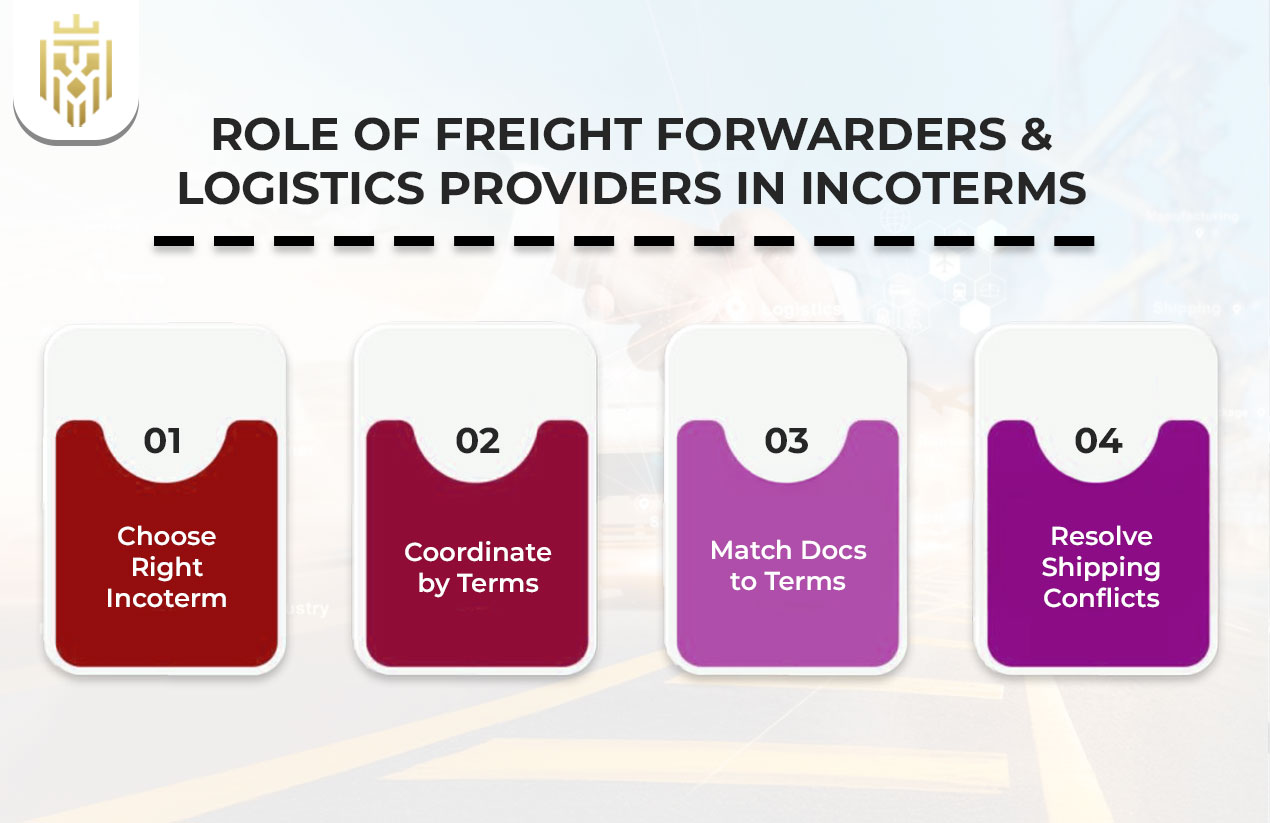
Freight forwarders play a vital role in Incoterm implementation by ensuring proper logistics coordination, document management, and dispute resolution.
Choose the Right Incoterm
Freight experts help select suitable Incoterms based on transport type, route complexity, and business needs, reducing risk in international shipping.
Coordinate by Terms
Logistics providers execute plans in line with agreed Incoterms, overseeing customs, transport, and documentation from origin to destination.
Match Docs to Terms
Freight partners ensure all documentation reflects agreed responsibilities under the Incoterm, preventing customs delays and disputes.
Resolve Shipping Conflicts
Experienced providers help resolve shipping disputes and correct documentation issues, ensuring contract terms are upheld efficiently.
Emerging Trends & Tech in Incoterms Usage
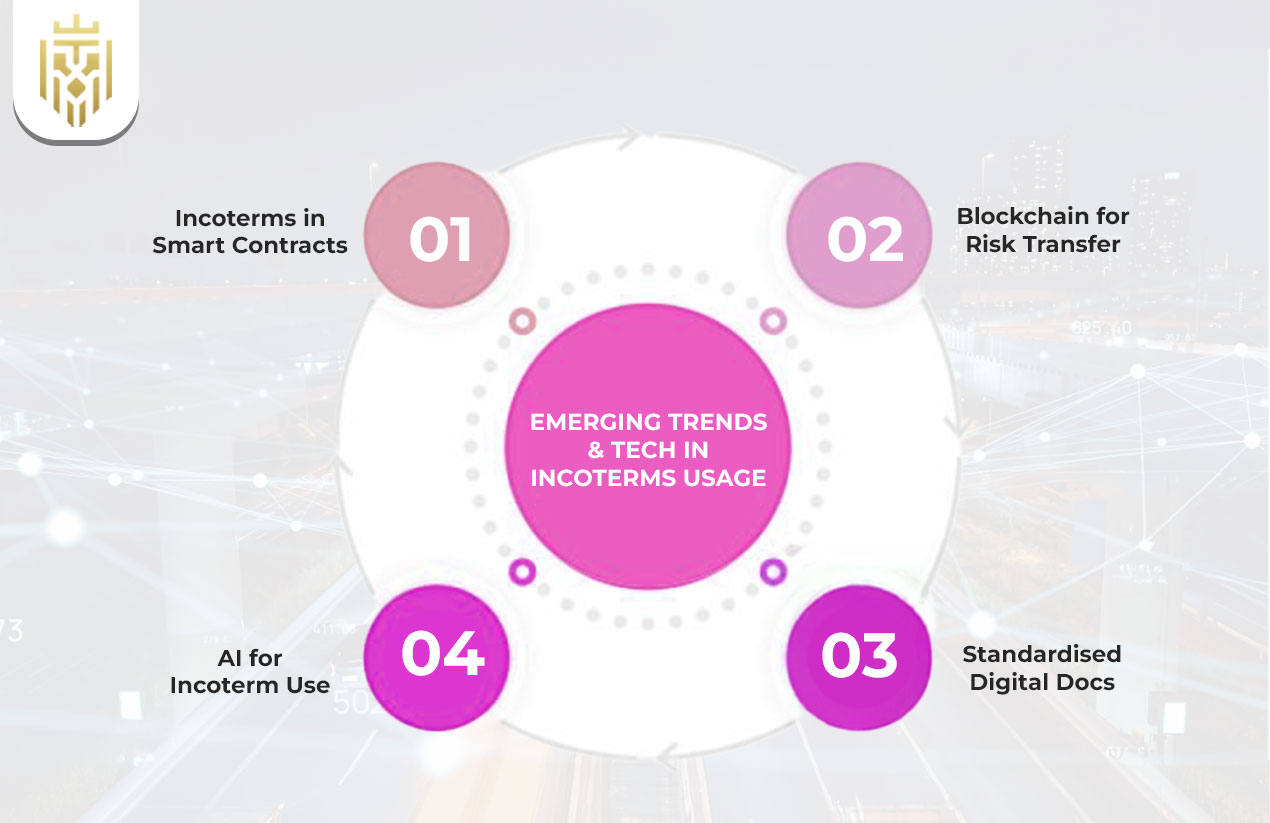
Technology is revolutionising Incoterm application by automating contract execution and improving transparency in global trade.
Incoterms in Smart Contracts
Smart contracts embedded with Incoterms automate payment and obligation transfer, reducing error and enhancing transaction security.
Blockchain for Risk Transfer
Blockchain enables real-time cargo tracking and records risk transfer events. This enhances reliability in high-value or time-sensitive trade.
Standardised Digital Docs
Standardised digital documents simplify compliance and speed up customs clearance, ensuring consistent execution of Incoterms.
AI for Incoterm Use
AI tools assist businesses in selecting optimal Incoterms by analysing cost, risk, and shipping trends, while also streamlining documentation.
FAQs
1) What are Incoterms used for in international trade?
Incoterms define responsibilities, risks, and costs between buyers and sellers in cross-border trade, preventing delivery and customs-related conflicts.
2) How do Incoterms affect shipping costs and responsibilities?
They clearly allocate who bears the cost and liability for transport, insurance, and customs, enabling fair and transparent shipping arrangements.
3) Which Incoterm puts the most responsibility on the buyer?
EXW (Ex Works) assigns nearly all duties to the buyer, including pickup, customs, and transportation risks.
4) What is the difference between FOB and CIF?
FOB transfers risk at the point goods are loaded onto the ship. CIF includes cost, insurance, and freight paid by the seller to the buyer’s port.
5) Can Incoterms be used for domestic shipments?
While intended for international trade, Incoterms may be applied to domestic transactions to standardise delivery responsibilities.
6) What’s new in Incoterms 2020 vs. Incoterms 2010?
Updates include renaming DAT to DPU, revised insurance minimums, and clearer cost-sharing responsibilities to reflect modern trade needs.
7) Are Incoterms legally binding on their own?
No. They must be part of a signed contract specifying the applicable version (e.g., Incoterms 2020) to hold legal weight.
8) Who selects the Incoterm — buyer or seller?
Either party may propose an Incoterm, but mutual agreement is required. Often, sellers include preferred terms in quotes.
9) What happens if there is a mistake in the bill of lading?
Errors can lead to customs delays or legal disputes. Corrections should be made immediately to reflect accurate cargo and responsibilities.
10) Is a bill of lading required for all international shipments?
Not always. Ocean freight requires a bill of lading; air freight uses an airway bill. Both serve as proof of shipment and ownership.
11) What does a clean bill of lading mean?
It indicates that goods were loaded in good condition, without visible damage or discrepancy — often necessary for securing trade finance.
12) Can a bill of lading be transferred to another party?
Yes, if negotiable. It can be endorsed and reassigned, facilitating cargo resale while in transit.

